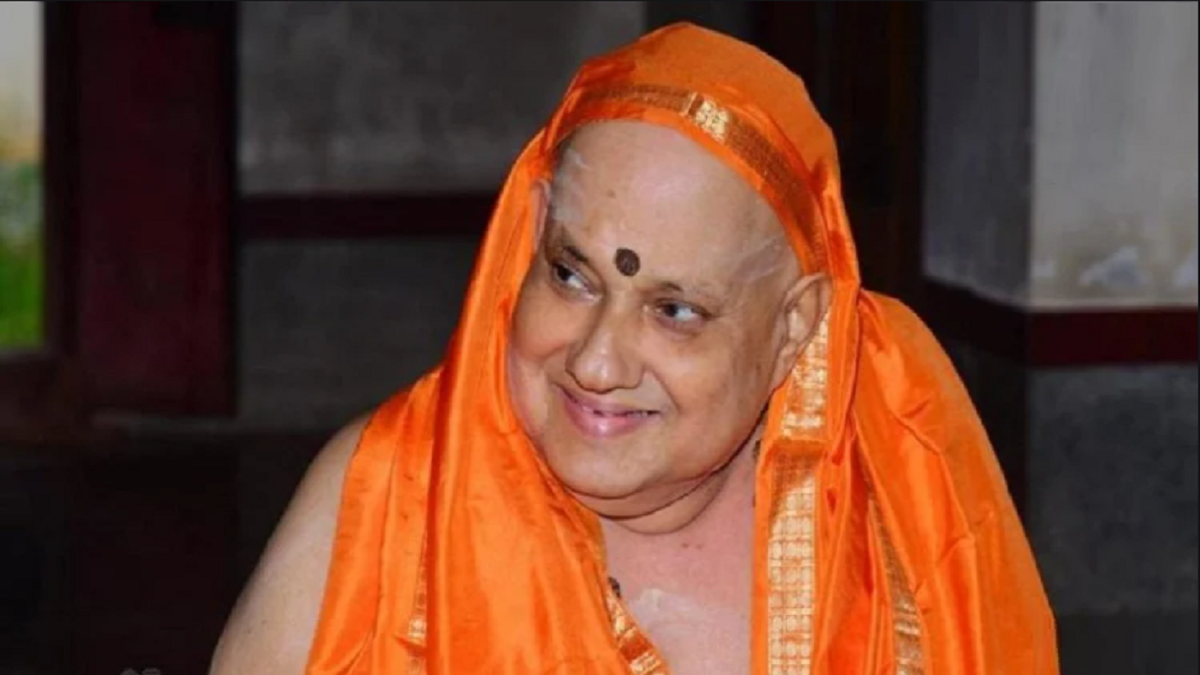


Kesavananda Bharati, whose petition in the Supreme Court led to the landmark verdict in 1973 outlining the basic structure doctrine of the Constitution, died at his Edneer mutt in Kerala’s Kasaragod district on Sunday. He was 79 years old.
Bharati was the petitioner in the Supreme Court’s noted judgement that Parliament cannot alter the basic structure of the Constitution. The seer, head of Jagadguru Shankaracharya Samsthanam Edneer Math, which belongs to the parampara of Sri Thotakacharya, one of the first four disciples of Sri Adi Shankaracharya, had challenged the Kerala government’s move to take over mutt property.
Prime Minister Narendra Modi condoled his demise saying that he will be remembered for his contributions towards community service and empowering the downtrodden. “We will always remember Pujya Kesavananda Bharati Ji for his contributions towards community service and empowering the downtrodden. He was deeply attached to India’s rich culture and our great Constitution. He will continue to inspire generations. Om Shanti,” PM Modi tweeted.
Union Home Minister Amit Shah too expressed sorrow at the death of Bharati. “Passing away of a great philosopher and revered seer, Swami Kesavananda Bharathi ji is an irreplaceable loss for the nation. He will always be remembered as an icon of Indian culture for his rich contribution to safeguard our tradition and ethos. My condolences with his followers,” Shah tweeted.
The Supreme Court verdict in the Kesavananda Bharati Vs State of Kerala and others case on 24 April 1973 said, “The basic structure of the Constitution is inviolable, and cannot be amended by Parliament.” The SC had ruled that the Parliament cannot use its amending power to alter the basic structure or the essential features of the Constitution.
Bharati had moved the court on 21 March 1970, challenging the Kerala government’s takeover of land owned by the mutt as per the state’s revolutionary land reforms act of 1969. The seer realised that it would be difficult to run the mutt once its property, source of income for running it, was acquired by the government.
Post enactment of the law, the mutt had lost its property and due to which it found it difficult to run the mutt and its charitable activities. Faced with the challenges, Bharati decided to opt for legal recourse.
The seer first took advice came barrister M.K. Nambair, a native of Kasaragod, and father of K.K. Venugopal, who is the Attorney General of India. It was Nambiar who introduced Bharati to noted jurist Nani A. Palkhivala, who advised the seer to file a petition in the Supreme Court.
Bharti moved the SC for enforcement of his rights guaranteed under Article 25 (Right to practice and propagate religion), Article 26 (Right to manage religious affairs), Article 14 (Right to equality), Article 19(1) (f) (freedom to acquire property), Article 31 (Compulsory Acquisition of Property).
The petition was heard by a 13-member bench, the largest ever bench in the history of the Supreme Court, for 68 working days from 31 October 1972 to 23 March 1973.
In the judgment, the Supreme Court bench said amendments should not alter the “basic structure” of the Constitution. It, however, did not specify what would constitute “basic structure”, leaving it open for courts to interpret on a case-by-case basis. Since then, the apex court has through various rulings interpreted the doctrine to include the supremacy of the Constitution, the rule of law, independence of the judiciary, doctrine of separation of powers, federalism, et al.
Although the verdict cemented the seer’s name in the legal history, he, like a true yogi, remained dispassionate about his issue, and called the court’s verdict God’s decision.